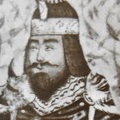|
Coriolis posted:Why did Russia suck so hard in this war? It was only against the Germans that they did badly.
|
|
|
|

|
| # ? Apr 19, 2024 16:50 |
|
Additionally, the efforts of Russia's war industry to catch up with its initial supply problems had the unintended side effect of sending the larger economy out of whack, as labor demands led to both rising wages and release of skilled workers from the ranks. The latter bred resentment for obvious reasons, while the former lead to a steep rise in food prices (which was also aggravated by dropping production due to the callup of agricultural workers). Large landowners took plots out of production as they either couldn't afford or just didn't want to pay higher wages, peasant smallholders reverted to subsistence growing, and the result was endemic food shortages, particularly in the capital. These shortages provoked first patriotic appeals to the Tzar for relief and shortly thereafter bread riots, when the government reacted to the mass petition by unleashing the Cossacks on the crowd (the brutality of which alienated the regular garrison of Petrograd, which was increasingly the main props of Nicholas's government). It should surprise no one that radicals within the only-recently legalized political parties, the SDs and SRs in particular, were not slow to capitalize on this simmering discontent.
|
|
|
|
Dreylad posted:Canadians I don't think were as well regarded in WW2 as they were in WW1. The leadership wasn't quite as good, and the Canadians got bogged down pretty fighting in the Netherlands and in retrospect, fought very good German troops on very difficult ground. If/when Canadian troops get mentioned in US schools about their activities in WW2 it's almost always "they went up against some of the best German troops and held their own", which is still impressive. Also, I'm not trying to dismiss any of the other commonwealth nations but when we are taught about WW1 (it being the conflict that setup WW2 so it gets a few weeks to WW2's 5-6 and we entered it in 1917) it's generally taught that between both wars Canadians and Scotts were tier 1, Ozzies and Kiwi soldiers were great but not quite tier 1, and regular British troops were decent and professional. Now taking world history in college WW1 gets covered a great deal more, but even still the sentiments of how effective/good the various commonwealth troops are were consistent with how they were viewed as in high school history. And if we're still going to be on this subject, I'd love to know what other countries are taught about US soldier effectiveness/professionalism in WW1.
|
|
|
|
Robert Graves 'Goodbye to All That' is an excellent sort of inside look into the British Army and just a good all around read (in my opinion of course). On the balance I believe the US troops rolled in with a massive amount of
|
|
|
|
In WWII Canadian troops really excelled in Normandy especially around Caen. But besides that I'm not sure what they did. But this thread is about WWI so yeah, the Canadians did crazy poo poo. I'm looking forward to the storm of new books coming out over the next few years to commemorate the 100th anniversary of every event. I've already purchased The Sleepwalkers, The War That Ended Peace, and Catastrophe 1914.
|
|
|
|
Not only was the American leadership's refusal to learn any lessons from the people who had been fighting it for 3 years mindblowingly stupid, but the American generals' carelessness about their men's lives should have been criminal. A shocking number of American officers continued to order offensives even after receiving word of the armistice signing just to get as much glory for themselves as possible by taking territory up to the last minute before the armistice took effect.
|
|
|
|
Barrakketh posted:Rennenkampf and Samsonov,the Commanders of Russia's 1st and 2nd Army respectively, were both very good generals. In what world do these two generals who threw their armies away in part because of an argument from nine years earlier qualify as "good"?
|
|
|
|
rex rabidorum vires posted:Robert Graves 'Goodbye to All That' is an excellent sort of inside look into the British Army and just a good all around read (in my opinion of course). Thanks, the two main things we're taught was that our overall leadership was incompetent, leadership at the battalion or lower was good. Also, 3 days of those 2 weeks was watching the Lost Battalion made for TV movie which covered the Lost Company stuff I think quite well. VitalSigns posted:Not only was the American leadership's refusal to learn any lessons from the people who had been fighting it for 3 years mindblowingly stupid, but the American generals' carelessness about their men's lives should have been criminal. We're also taught this. Basically we spent a day on the why (Zimmerman Letter and Lusitania) then a week on the actual war, then another 2-3 days on things like glory seeking officers, the Treaty of Versailles, how the senate back home hosed Wilson out of spite in the process hosed our entry into the league of nations which were the main causes that lead to WW2. A Winner is Jew fucked around with this message at 23:11 on Feb 14, 2014 |
|
|
|
Raskolnikov38 posted:In what world do these two generals who threw their armies away in part because of an argument from nine years earlier qualify as "good"? Inferior generals rely on things like "operational security", "encryption", and "the element of surprise". The unbeatable Divine Russian Armies had no need of such trifles and sent all radio orders in the clear! Only overwhelmingly superior generalship could conceive of such flawless plans that it didn't matter whether the enemy knew every detail or not!
|
|
|
|
New Zealand schools spend a lot of time on Gallipoli, the Western Front's kind of an afterthought (basically the New Zealand Division was pretty good but mostly because it was permanently over strength) and not a lot of time on boring stuff like our brutal and incompetent administration of German Samoa or New Zealand soldiers massacring villagers in Palestine.
|
|
|
A Winner is Jew posted:Basically we spent a day on the why (Zimmerman Letter and Lusitania) then a week on the actual war, then another 2-3 days on things like glory seeking officers, the Treaty of Versailles, how the senate back home hosed Wilson out of spite in the process our entry into the league of nations which were the main causes that lead to WW2. You know, I think this might make the Mexican government the smartest involved in WWI.
|
|
|
|
|
Nessus posted:God, the Zimmerman letter is so ridiculous. For those who are unfamiliar: The Germans offered to back up Mexico in declaring war on the US, with the understanding that Mexico would get back Texas, Arizona and New Mexico in the process. The Mexicans paused, looked around, and realized this was an idiotic plan in about twenty ways and declined the German offer. It was such a stupid offer that a huge amount of people believed that it must have been a forgery...until Zimmerman himself confirmed it was real.
|
|
|
|
Anybody in Austin now or until August might want to stop by the Harry Ransom Center at the UT campus. There's an exhibit of a bunch of WWI papers, prints, posters, books, etc. Kind-of dry but there's some pretty interesting stuff if you're into WWI. I was there with one of my kids (who's probably catching up in this thread now) the other day. An older English couple was being shown around the mostly empty gallery. We overheard them ask the docent whether she expected that soon people would start pouring in from all over the country to see the "so very important" material on display.  Oh also, this year (sometime in March I think) is the 100th anniversary of the Battleship Texas being commissioned. It's really the only vessel of its kind still in existence, and though it was fairly heavily refitted between the wars much of the thing is as-built. That includes the triple-expansion piston steam engine, which itself is a national landmark. (There's a really cool digital animation that plays on a TV set up deep in the bowels of the ship.) When you visit, unless there's a cub scout troop around you'll be almost all alone. Be sure to check out the fantastic (seriously) all-silver ship model on display in the forward part of the ship. It's a model of De Ruyter's flagship De Seven Provincien from the Dutch wars of the 17th century, and it was presented to the battleship by the Holland America Line after the Texas assisted in the rescue of passengers and crew of the steamer Ryndam in 1915. I'm obsessed with that model.
|
|
|
|
Sylphid posted:In a weird twist of fate, it's always been amazing to me just how much better World War II, a conflict fought with crushing intensity across Europe, Asia, and Africa, a war filled with unparalleled atrocities and countries (in this case, Germany and Japan) whose leaders would prefer to destroy themselves and their country before admitting defeat, ended a lot better than World War I did. That's for a lot reasons, especially that the Soviet Union and United States were the unquestioned superpowers after the war and each had their alliance blocs to protect them from future wars, and the new threat of nuclear weapons, etc. I mean, at the end of WWI, a decent chunk of territory changes hands in Europe, but a relatively tiny amount actually constitutes any sort of casus belli -- Alsace/Lorraine, West Prussia, and arguably little bits of Silesia. The rest more or less gets distributed in ways that make the majority of people living in those areas happy. Sure, there are "oppressed German minorities" in the Sudetenland, but independence had been an impossible dream for centuries in places like the Baltics, Poland, and a bunch of Austro-Hungarian possessions, leaving many of the new countries little reason to complain and no reason to risk an offensive war. Germany, however, is so pissed about losing Elsass-Lothringen and West Prussia that it commits to a war that will end up losing it territory roughly equal in size to half of present-day Poland, and yet there's nary a peep about it today, because the Allies realized that you can't trade places full of people that don't want your government. Instead, as the Soviets did with Prussia, you've got to get the people out too. I think it's ironic that we remember WWI for its bitter peace terms, when WWII's terms fell far heavier, heavier enough indeed to quench any appetite for further revenge, and demonstrates yet another way WWII built up the genocide playbook.
|
|
|
|
I'd be curious to know more about the lives of those poor Was it just legions of futzy little clerks standing around switching yards with stopwatches and big ledgers tucked under their arms, or what?
|
|
|
|
Sylphid posted:World War II did ignite the Cold War and the ensuing proxy conflicts, both on the US and Soviet side, but it just seemed people were a lot happier with the way peace was reached with the Axis powers than with the Central Powers. There was nothing like the inter-war period of malaise and hopelessness, and certainly no global war a generation later. I like to think the Allies were a lot more unified in what peace was going to look like in Europe, and nothing like the post-World War I peace talks, where you had idealists like Wilson wanting to run the show, France having a 50 year axe to grind against Germany, and Britain wanting even more territory and assurances for their empire. Well the Allies did have to get talked down from raiding Germany's industrial base for themselves, turning half the country into farmland and having 25 million Germans starve to death in the process so they'd never be a threat to
|
|
|
|
Shimrra Jamaane posted:In WWII Canadian troops really excelled in Normandy especially around Caen. But besides that I'm not sure what they did. The Canadians were major players in the Battle of the Atlantic since day one and by the wars end had the third largest navy in the world after the Americans and the British. Canada was extremely important as it was geographically isolated from the main theatres and hence served as a major training center (particularly for allied pilots) and breadbasket that sustained Britain in the years before lend-lease began. The Canadians also fought against the Japanese in the doomed defense of Hong Kong. The survivors were put through the same slave system as the rest of the allied PoW's until Japan's surrender. This was the only time that Canadian forces directly fought against the Japanese (unless you count Japanese firebombs that landed in Canada and the shelling of a lighthouse in BC by a Japanese submarine.) They were also part of the Commonwealth Force that was going to land at Honshu near Tokyo during the planned invasion of the Japanese home islands. It is a good thing that this never went through because if I recall the Japanese had a poo poo-ton of defending forces in that region. In Europe the bulk of the Canadian forces were stuck in Britain for most of the war. The Canadians arrived in Britain in 1940 but basically sat around because infantry wasn't much use during the Battle of Britain. In 1942 the Canadians were the bulk of the forces at the Dieppe Raid, which was a disastrous rout that resulted in most of the Canadians present being killed or captured. However, it provided extremely valuable intelligence on the strength of the Atlantic Wall (that was later used to help plan the invasion of Normandy) and new research has suggested that the raid was in fact also used as a cover for an attempt by British commando's to obtain a working Enigma machine. I don't remember if it was actually successful, but it was planned by the original James Bond himself Ian Fleming. Canadians were also involved in the invasions of Sicily and Italy attached to the British force and assisted in Operation Shingle which resulted in the capture of Rome. This was also the first time that the 1st Special Service Force, also known as the "Devil's Brigade" and composed of elite American and Canadian troops saw direct action at Anzio and earned a reputation for ruthless efficiency that even the Germans recognized. All in all Canada was involved to a surprising extent in the European theatre of WWII, and was actually the strongest allied military force in Europe after the Soviets, Americans, and British, something that I think is quite remarkable considering Canada's population size relative to the other major players. Luigi Thirty posted:Well the Allies did have to get talked down from raiding Germany's industrial base for themselves, turning half the country into farmland and having 25 million Germans starve to death in the process so they'd never be a threat to More importantly they also realized that this would basically be genocide, ensure that a cycle of hateful revenge continued (and hence would make it easier for more fascists to gain power in the future) and would effectively make them no better than the Nazis. Also, it would tank the world economy and they still wanted a strong Germany to help contain the Soviet Union. Fojar38 fucked around with this message at 06:21 on Feb 15, 2014 |
|
|
|
Fojar38 posted:All in all Canada was involved to a surprising extent in the European theatre of WWII, and was actually the strongest allied military force in Europe after the Soviets, Americans, and British, something that I think is quite remarkable considering Canada's population size relative to the other major players. Actually Romania exceeded Canada after September 1944.
|
|
|
|
Panzeh posted:Actually Romania exceeded Canada after September 1944. Really? I didn't know that.
|
|
|
|
Fojar38 posted:Really? I didn't know that. Yeah, when Romania had a coup and signed an armistice with the Soviets, its entire army went to the Allies, and unlike with the Italians, the Russians allowed the Romanian army to remain intact as long as it went to the front.
|
|
|
|
rex rabidorum vires posted:Robert Graves 'Goodbye to All That' is an excellent sort of inside look into the British Army and just a good all around read (in my opinion of course). I love the foreword he wrote in the edition I last read, which paraphrased is "in retrospect, how no one ever sued me for libel for writing this I'll never know." VitalSigns posted:Inferior generals rely on things like "operational security", "encryption", and "the element of surprise". The unbeatable Divine Russian Armies had no need of such trifles and sent all radio orders in the clear! Only overwhelmingly superior generalship could conceive of such flawless plans that it didn't matter whether the enemy knew every detail or not! To be fair to those two, while they were boneheaded about that the issue of radio security is really overemphasized, particularly as their German counterparts signaled in the clear a fair amount too, due to time constraints and a shortage of cryptographers and translators. Additionally, both sides were short on radio gear and could spare very few sets to scan the air for enemy signals, so while still not the brightest move, it was hardly a fault unique to Russia and, for lower-level things, more a toss of the dice than, err, Russian roulette (sorry, best analogy I could come up with at this hour). Signaling entire 1st Army maneuver orders, on the other hand, well...
|
|
|
|
My favorite thing about the beginnings of WWI is also probably one of the saddest things. With the assassination of the Archduke Austria saw their chance to cripple Serbia's rise and growing friendship with Russia. German leaders urged Austria to go to war as soon as possible but the Austrian army just wasn't ready. So instead the German high command wrote a list of demands for the Austrians to give Serbia that they knew Serbia couldn't accept. There were things like getting the approval of the Austrian government for foreign policy and Austrians having police powers throughout Serbia. They gave them until the end of the month to respond. In that time Germany and Austria began to tool up its military for the war they knew was coming. Why they wanted a war so badly is open to debate and like everything is multifaceted. They were weary of Russia's modernizations. They knew that the colonial powers would eventually have to come to blows to solve their growing problems. And a large amount of it was familial dick-waving. Unbelievably Serbia wound up accepting most of the demands because they knew their ally Russia wouldn't be able to save them in time before they would get swallowed up by an invasion. The German Staff was distraught because they were nearly at the point of no return and they weren't going to get their war. This is where the argument about time tables comes in. At this point they were only about 12 hours from invading Belgium and they thought the war wouldn't be happening. Wilhelm II himself was to have remarked that peace would reign. The Austrians however didn't give two shits about Serbia effectively ceding its national sovereignty anyway and declared war on their own citing the few demands that weren't to be met. This absolutely horrified the Germans because with the written ultimatum Austria was seen as being evenhanded and would have been within their rights to annex at least the troublesome parts of Northern Serbia that was really giving them trouble. Now however they were clearly the aggressors and induced Russia into jumping in to Serbia's defense. Basically Austria used a lovely situation to start a war they and Germany had wanted from the beginning but the Serbians weren't playing along with their game. They wound taking all the goodwill they had received for having their heir assassinated and poo poo on it to become the bad guys.
|
|
|
|
One of the things that World War I brings to mind for me is this poem. Read it in 10th Grade English class during a unit on war poetry, and it never really left my head.Wilfred Owen posted:Dulce Et Decorum Est Lord_Ventnor fucked around with this message at 21:36 on Feb 15, 2014 |
|
|
|
Shimrra Jamaane posted:In WWII Canadian troops really excelled in Normandy especially around Caen. But besides that I'm not sure what they did. Hey, thanks for that mention! I love Margaret McMillan's 1919
|
|
|
|
Lord_Ventnor posted:One of the things that World War I brings to mind for me is this poem. Read it in 10th Grade English class during a unit on war poetry, and it never really left my head. Among the stuff at the document exhibit in Austin I mentioned above are some papers of Siegfried Sassoon, who met Owen after his own decision to object to the war (after having been awarded the Military Cross for sometimes almost suicidal bravery). He was instrumental in getting Owen to work more on his writing. Seigfried Sassoon, in the poem "Does It Matter?" posted:Does it matter? — Losing your legs? ... in the poem "Trench Duty" posted:Shaken from sleep, and numbed and scarce awake,
|
|
|
|
emfive posted:Among the stuff at the document exhibit in Austin I mentioned above are some papers of Siegfried Sassoon, who met Owen after his own decision to object to the war (after having been awarded the Military Cross for sometimes almost suicidal bravery). He was instrumental in getting Owen to work more on his writing. Sassoon's "Suicide in the Trenches" is one of my favorites as well, mainly in how the closing verse makes unmistakeable his sullen contempt for the uncomprehending home front, lost to jingoistic sentiment. quote:I knew a simple soldier boy
|
|
|
|
Can anyone go into more detail about how WWI and its aftereffects were essentially the final straw for the antiquated gold standard as the governor of international finance? Lords of Finance covers it in part but there must be more info out there.Dreylad posted:
That rather looks like an ad targeted to white Canadians and telling them "look even the Natives are helping, why aren't you?". HCO Plumer GCB GCM posted:I'm not saying you're wrong for one second, but do you have any numbers to back this up ? Not exactly writing you know, but World War II happened with video and audio recording in full swing, and tons of that was used in stuff about WWII from the first years of the war all the way to today. First A&E and later History channel were notorious at successive times for running so much stuff on World War II that they both had the nickname of "the Hitler channel" at various points. And then hell, there's even been tons of video games explicitly focused on WWII. Comparatively, WWI had a lot less footage recorded, a lot less of it even survived til the WWII era, and consequently there's less about it. You add to that how many more people were personally involved in WWII, more people who were involved in WWII survived at least long enough to write about their experiences, and it adds up even more.
|
|
|
|
WWII also has a far better narrative. "Evil empire divides and conquers Europe but everyone heroically rallies together at the last minute and destroys the evil empire" makes for far better movies and video games than "An archduke got assassinated and politics made everyone faff about in trenches dying for a few years and basically nothing was resolved."
|
|
|
|
Install Windows posted:Can anyone go into more detail about how WWI and its aftereffects were essentially the final straw for the antiquated gold standard as the governor of international finance? Lords of Finance covers it in part but there must be more info out there. I don't think I'd agree with that; WW1 caused many countries to suspend the gold standard, but most hopped right back on as soon as they were able (some disastrously, like the UK with Churchill as Chancellor of the Exchequer). It was really the effects of the Great Depression, and the need to devalue, that started burying the gold standard, but even then the US had some measure of limited convertibility until Nixon.
|
|
|
|
I did not know that about Churchill's stint as Chancellor. Did that man do anything well except make speeches and crack jokes?
|
|
|
V. Illych L. posted:I did not know that about Churchill's stint as Chancellor. Did that man do anything well except make speeches and crack jokes?
|
|
|
|
|
Agronox posted:I don't think I'd agree with that; WW1 caused many countries to suspend the gold standard, but most hopped right back on as soon as they were able (some disastrously, like the UK with Churchill as Chancellor of the Exchequer). The effects of the great depression came about as a result of the pre-war economy being completely destroyed, and the striving to keep to various gold pegs meaning an avoidance of fixing problems in economies. Not to mention aspects of the gold standard and currency in general being used as weapon by multiple countries in an attempt to control how German war debts from the treaty would get paid back! There was nominally convertibility until Nixon but in practice it was barely ever used. V. Illych L. posted:I did not know that about Churchill's stint as Chancellor. Did that man do anything well except make speeches and crack jokes? Churchill was advised to do it by the leaders of the Bank of England. He had gotten what amounted to presentations to him on various dies of the question. Later on he admitted he should have listened to Keynes that the Bank of England people were too stuck in the past.
|
|
|
|
V. Illych L. posted:I did not know that about Churchill's stint as Chancellor. Did that man do anything well except make speeches and crack jokes? That's a bit far afield from this thread. Talking strictly World War 1, Tuchman, at least, praised his tenure as First Lord of the Admiralty early in the war. For instance, in the month before the war broke out Churchill sort of pre-mobilized the Navy and sent it off to Scapa Flow, instead of the ships' home ports, where they were scheduled to be. It's hard to say what would've happened otherwise but there's no doubt that concentrating the fleet and having it on a firm war footing at the time was the right move (and it's more than other countries did). Of course, Tuchman's book ends long before Gallipoli...
|
|
|
|
Fojar38 posted:WWII also has a far better narrative. "Evil empire divides and conquers Europe but everyone heroically rallies together at the last minute and destroys the evil empire" makes for far better movies and video games than "An archduke got assassinated and politics made everyone faff about in trenches dying for a few years and basically nothing was resolved." I disagree I find the complexity and moral "greyness" of world war 1 way more interesting from a narrative perspective, but I'm not a big fan of the "good vs evil" narrative. Although I understand why WW2 gets more movies.
|
|
|
|
Agronox posted:Of course, Tuchman's book ends long before Gallipoli... Churchill took a lot of heat for Gallipoli, and in a way it was really his fault, but a lot of the more detailed blame should be directed at Fisher, who was (source: Manchester, admittedly not super-objective) getting kind-of weird and possibly nuts. Churchill started pushing for an assault on Constantinople a long time before the Turks figured out what was going on and fortified the peninsula. Before the Turks got their poo poo together, the only thing protecting Constantinople was the Goeben and some mine fields. The navy couldn't manage the naval forcing of the Dardanelles, and the invasion idea took loving forever to come together. After the naval fiasco Churchill should have just given it all up. To his credit, Churchill served in the army on the front as a sort-of self-imposed penance. He was a lot of things, a lot of terrible things, but they don't make them like that anymore. The first couple chapters of The Last Lion paint a really vivid picture of the Victorian world. Manchester's books are (to me) really fun to read, but it's pretty clear where his sympathies lie (though he calls Churchill out for his more barbaric actions, statements, and attitudes).
|
|
|
|
Oh also, the intrepid war correspondent responsible for creating the home front scandal over Gallipoli in the fall of 1915 was Keith Murdoch, Rupert Murdoch's father.
|
|
|
lullelulle posted:I disagree I find the complexity and moral "greyness" of world war 1 way more interesting from a narrative perspective, but I'm not a big fan of the "good vs evil" narrative. Although I understand why WW2 gets more movies.
|
|
|
|
|
Nessus posted:He was also talented at smoking cigars. And he was rather good at watercolors too Seriously though, as has been mentioned Churchill's biggest fault with regard to immediate postwar economics was that he took some reasonable but very bad advice from established financial minds, rather than the more cutting edge Keynes. Although frankly the British economy in the immediate aftermath of the war was likely to go into a tailspin anyway, given an overall failure to prepare for postwar downturn in demand as the government stopped its massive war material orders, a situation which was not made easier due to the political mess engendered by the Liberals disintegrating from the Llyod-George - Asquith schism and simultaneous establishment, but not ascendency, of Labour.
|
|
|
|
Unluckyimmortal posted:Germany, however, is so pissed about losing Elsass-Lothringen and West Prussia that it commits to a war that will end up losing it territory roughly equal in size to half of present-day Poland, and yet there's nary a peep about it today, because the Allies realized that you can't trade places full of people that don't want your government. Instead, as the Soviets did with Prussia, you've got to get the people out too. I think it's ironic that we remember WWI for its bitter peace terms, when WWII's terms fell far heavier, heavier enough indeed to quench any appetite for further revenge, and demonstrates yet another way WWII built up the genocide playbook. But yeah, the Germans were really really pissed over losing the area of Eastern Prussia which were thought of as German rather than Polish (i.e the Polish corridor).
|
|
|
|

|
| # ? Apr 19, 2024 16:50 |
|
Nessus posted:I think another problem is that even leaving aside the morality or lack thereof, WWI was in large part defined by people sitting in trenches and blasting at each other, producing a casualty rate comparable to a 24/7 2fort map on Team Fortress 2 but not actually accomplishing very much. A lot of the tactics of WWII actually focused heavily on avoiding a repeat of that, if I recall right, which is part of why the Germans were so successful and also why Hitler didn't just (if you'll forgive the term) turtle up. Even in the Pacific, where a lot of the fancy tactics and tanks didn't apply, you had the drama of island landings. A teacher I once had put WWII tactics in relation to the experiences in WWI in a very interesting and different light for me. It wasn't necessarily that all of the countries involved wanted to avoid to Trench warfare again, it was simply (in the German and French cases especially) that none of the nations involved could go to Trench warfare as a viable tactic. Trench warfare requires a lot of manpower, as its basically a tactic of attrition. WWI had bled multiple countries dry of entire generations of capable men. Blitzkrieg was a solution to a manpower shortage; striking hard and fast and using numerically inferior forces to trap and defeat larger forces en masse, so you don't get bogged down in a slog. The French were all about static defense with the big defensive fortification they had in Alsace-Lorraine (completely escaping my mind at the moment). Nazi Germany was running around with a crippled German body thanks to the Kaiserreich. Something I haven't noticed mentioned in this thread in relation to the Russian-German-Austro/Hungarian Triangle of WWI, was the Bosnia-Herzegovina crisis of 1908-1909. Basically, as the ottoman Empire fell apart all the little Balkan powers were grabbing territories with even a smidgen of their own ethnic groups in them. Bosnia-Herzegovina, which around the turn of the century was considered to be Serbian-majority, was about to be grabbed by Serbia. Austria-Hungary and Russia stepped in though to discuss what should be done with the territory, before just giving it over a little Balkan power. Russia was also interested in Pan-Slavism, and wasn't too opposed to Serbia gaining more territory. It was decided that Austria-Hungary would protect Bosnia-Herzegovina in a secret agreement, but NOT annex it. Then, behind the Russian's backs, Austria with German backing decided to annex the territory outright. Russia was humiliated, as it was not in a position to do anything, Serbia was enraged over the 'Germans' gaining more territory with Serbs in them, and Austria-Hungary and Germany were seen as being kinda huge jerks. Five years later, when July Crisis rolls around, Czar Nicholas was going to have a hard time backing down and not supporting Serbia against Austria-Hungary for a second time.
|
|
|





























